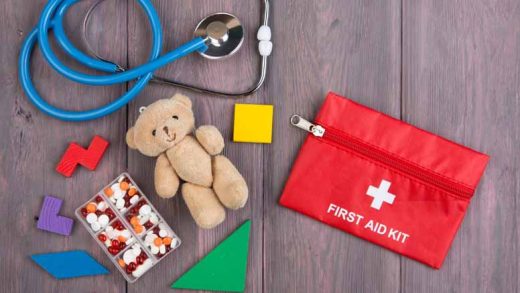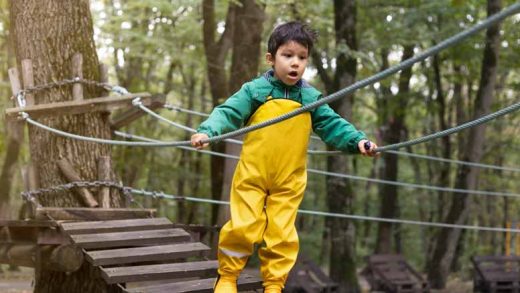Parents need to make sure that their kids are well-hydrated. Parents find themselves confused about the amount of water their child should drink. They raise questions such as “How much water should a baby drink?” and “How much water should a 2-year-old child need?” This article will provide you with the answers and some tips to encourage your baby to drink water. We will delve into the importance of balance, the right water intake, and tricks if your child refuses to drink water. Understanding this allows you to take care of what matters: your child’s health. It means setting them forth on a lifetime course of well-hydrated habits.
Why Keeping Your Kid Hydrated is Important?
Proper hydration is important for the overall well-being and growth of every kid. The body needs water and uses it to control temperature and perform digestion. It also acts as a nutrient absorption, among other bodily functions. In young children, hydration encourages an active body, hence optimal growth.
Dehydration problems in kids can cause severe effects on their health, such as constipation, urinary tract infections, and kidney problems. It can also change the mood and cognitive functions of your child. This will make them irritable and less attentive. Also, considering the high physical activity in kids as well as an underdeveloped thermoregulation body system, they are at a more significant danger of dehydration, especially in hot climates.
Healthy hydration in kids also prevents a number of problems that may develop in the health of an infant. An example is the prevention of kidney stones and urinary tract infections. Proper hydration will also help prevent the skin from becoming too dry. This is very important for young children, as they have sensitive skin.
Understanding the importance of hydration will help you focus on your child’s daily routine. This will be the first step in creating healthy drinking habits. They will then follow this habit throughout their life.
How Much Water Does Your Toddler Need?
For kids aged 1-2 years, experts suggest one to four cups of water every day. During this period, they usually take breast milk but you must allow them to take little water while on other solid foods too. That’s why many parents question the amount of drinking fluid for an infant at this stage. The quantity a child intakes is dependent upon its age, activity level as well as the kind of food consumed.
Your child will need to consume more water as they get older. At 2 years old, they should be drinking between 2 and 5 cups of water per day, depending on their activity levels. It ensures they remain well-hydrated. It also helps them with their physical activity needs. It is important to note that these rules are general, and individual requirements may vary greatly. You can tell if your toddler lacks fluids by watching their pee colour; normally, it should be light yellow in colour and regular. If your kid is more active or it’s mainly hot, you may need more water to stay properly hydrated.
What Should You Do If Your Child Won’t Drink Water?
Some kids prefer to drink beverages other than water. This can be pretty difficult for parents. But it’s very important to set up a drinking water habit. Here are some of the ways in which you can make your kid drink water:
- Lead by Example: Most children emulate the behaviour of their parents. So, drink water in front of your child often. They will be more likely to drink water if they see you making drinking water a priority.
- Make Water Fun: To make water more interesting, serve it in coloured cups. Try giving it with fun straws, or you can even freeze some fruit pieces into ice cubes.
- Offer Water-Rich Foods: Make room for nutritious fruits and vegetables in their meals. Fruits like watermelon, cucumbers, tomatoes, and strawberries will account for a tasty and watery addition to their daily diet. This will contribute to their better health.
- Set a Routine: Establish a timetable for daily intake of water. Your child can be made to drink water in the morning after waking up, taking water in between meals, and before going to bed. Consistency will help develop a drinking schedule.
- Limit Sugary Drinks: Cut down on your child’s intake of these sugary beverages. For example, juices and fizzy drinks induce a liking for sweet taste. Hence, the child might not show much interest in consuming bland water. Alternatives include providing diluted juice or flavoured water with a hint of natural fruit.
- Set a Routine: Positive reinforcement works very well. Praise the child whenever they have water. Giving them small rewards will help in maintaining this healthy habit. For example, giving stickers or doing something special can encourage the child to drink more water.
- Using Technology: There are many apps and devices available for children, helping them remember and encourage their intake of water. They can be interactive and fun tools to engage in tracking their water consumption.
- Be Patient and Consistent: Drinking water regularly may take a while to become a habit for your child. Be patient and consistent in your efforts. With time, they will get used to it.
- Consult a Paediatrician: If you are worried about your child’s hydration, or he/she persistently refuses to drink water, you should consult a paediatrician. He/she may offer you further advice and possibly ‘play down’ underlying medical issues.
Drinking water is very important in keeping young children healthy. It is important for parents to know how many cups their toddlers need every day. Parents can use some recommendations to ensure that young people drink enough water. It should also be noted that every child is unique in his or her own way and so one should adapt these measures to what will suit their kid best.
At Kangaroo Kids International Preschool, we prioritise the health and well-being of your child. Enrol today to give your child the best start in life with our comprehensive programmes and dedicated care.









